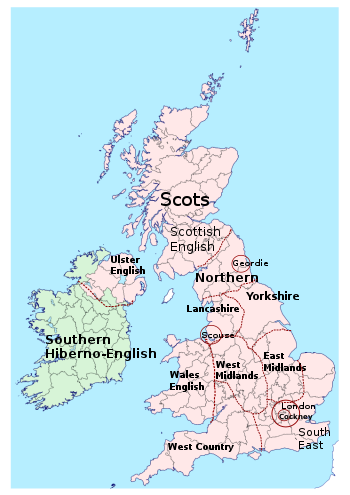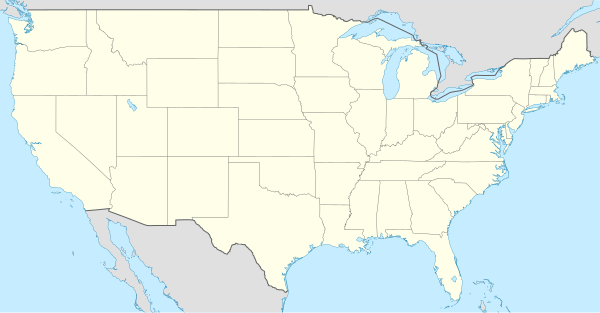|
List of dialects of EnglishDialects are linguistic varieties that may differ in pronunciation, vocabulary, spelling, and other aspects of grammar. For the classification of varieties of English only in of pronunciation, see regional accents of English. OverviewDialects can be defined as "sub-forms of languages which are, in general, mutually comprehensible."[1] English speakers from different countries and regions use a variety of different accents (systems of pronunciation) as well as various localized words and grammatical constructions. Many different dialects can be identified based on these factors. Dialects can be classified at broader or narrower levels: within a broad national or regional dialect, various more localised sub-dialects can be identified, and so on. The combination of differences in pronunciation and use of local words may make some English dialects almost unintelligible to speakers from other regions without any prior exposure. The major native dialects of English are often divided by linguists into three general categories: the British Isles dialects, those of North America, and those of Australasia.[2] Dialects can be associated not only with place but also with particular social groups. Within a given English-speaking country, there is a form of the language considered to be Standard English: the Standard Englishes of different countries differ and can themselves be considered dialects. Standard English is often associated with the more educated layers of society as well as more formal registers. British and American English are the reference norms for English as spoken, written, and taught in the rest of the world, excluding countries in which English is spoken natively such as Australia, Canada, Ireland, and New Zealand. In many former British Empire countries in which English is not spoken natively, British English forms are closely followed, alongside numerous American English usages that have become widespread throughout the English-speaking world.[3] Conversely, a number of countries with historical ties to the United States tend to follow American English conventions. Many of these countries, while retaining strong British English or American English influences, have developed their own unique dialects, which include Indian English and Philippine English. Chief among other native English dialects are Canadian English and Australian English, which rank third and fourth in the number of native speakers.[4] For the most part, Canadian English, while featuring numerous British forms, alongside indigenous Canadianisms, shares vocabulary, phonology and syntax with American English, which leads many to recognise North American English as an organic grouping of dialects.[5] Australian English, likewise, shares many American and British English usages, alongside plentiful features unique to Australia and retains a significantly higher degree of distinctiveness from both larger varieties than does Canadian English. South African English, New Zealand English and Irish English are also distinctive and rank fifth, sixth, and seventh in the number of native speakers. Europe Great BritainEngland
Scotland
WalesNon-geographic based EnglishBritish dependencies and territories
Ireland
Continental EuropeEastern EuropeMediterraneanNorth AmericaUnited StatesInteractive map of American English
CanadaInteractive map of Canadian English
Caribbean, Central, and South AmericaCaribbeanThe BahamasBarbadosBelizeBermudaCayman IslandsColombiaCosta RicaDominican RepublicFalkland IslandsGuyanaHondurasJamaicaNicaraguaPanamaPuerto RicoSabaSaint Vincent and the Grenadines
Trinidad and TobagoTurks and Caicos IslandsVirgin IslandsAsiaBangladesh
BruneiMyanmar (Burma)Hong KongChina and Taiwan
IndiaIndian English:
JapanSouth KoreaMalaysiaMiddle EastNepalPakistanPhilippinesSingaporeSri LankaAfricaCameroonThe GambiaGhanaKenyaLiberiaMalawiNamibiaNigeriaSierra LeoneSouth Africa
South Atlantic
UgandaZambiaZimbabweOceaniaAustralia
FijiNew Zealand
PalauSouth AtlanticWorld Global EnglishThese dialects are used in everyday conversation almost all over the world, and are used as lingua francas and to determine grammar rules and guidelines.
AntarcticaSee also
References
Further reading
External links
|

